Contact us directly to discuss your specific requirements, help you with purchasing, or with any other questions.
This "how-to-connect" documentation will explain the initial configuration of an example connection from Google Drive to a SharePoint Online Library in Office 365.
This guide presupposes that you have installed the Layer2 Cloud Connector and that you are familiar with its basic functionality. The Layer2 Cloud Connector User Documentation will provide you with all necessary information.
2. Configuring the Layer2 Cloud Connector
2.2 Configuring the Data Entity 1
2.3 Configuring the Data Entity 2
3.2 Layer2 Cloud Connector app not yet verified
To access your Google Drive account with the Layer2 Cloud Connector, you only need to authenticate through the Layer2 Cloud Connector and authorize the application to access your files.
We will be synchronizing our Google Drive Files as shown below:
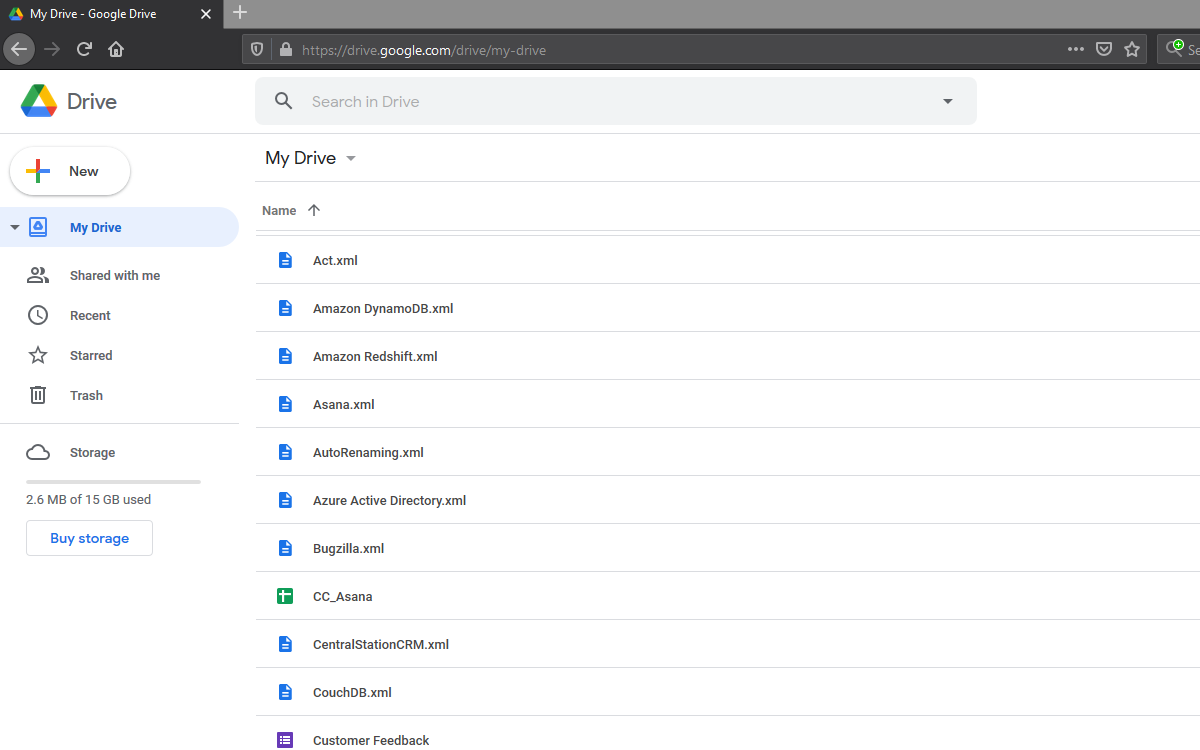
Create a new connection by using the Create New Connection option in the Actions pane (right-hand side). The new connection will appear at the bottom of the Connection Manager List (left-hand side). Click on your newly created connection to open the connection configuration settings.
Choose a meaningful name for your connection and replace the current "New Connection" Connection Title with it.
Connections to Google Drive can be bi-directional. An initial connection should always be uni-directional to assure that both data entities are identical before switching to bi-directional. Therefore, choose Left to Right as Direction. You can change this setting after your initial synchronization finished successfully.
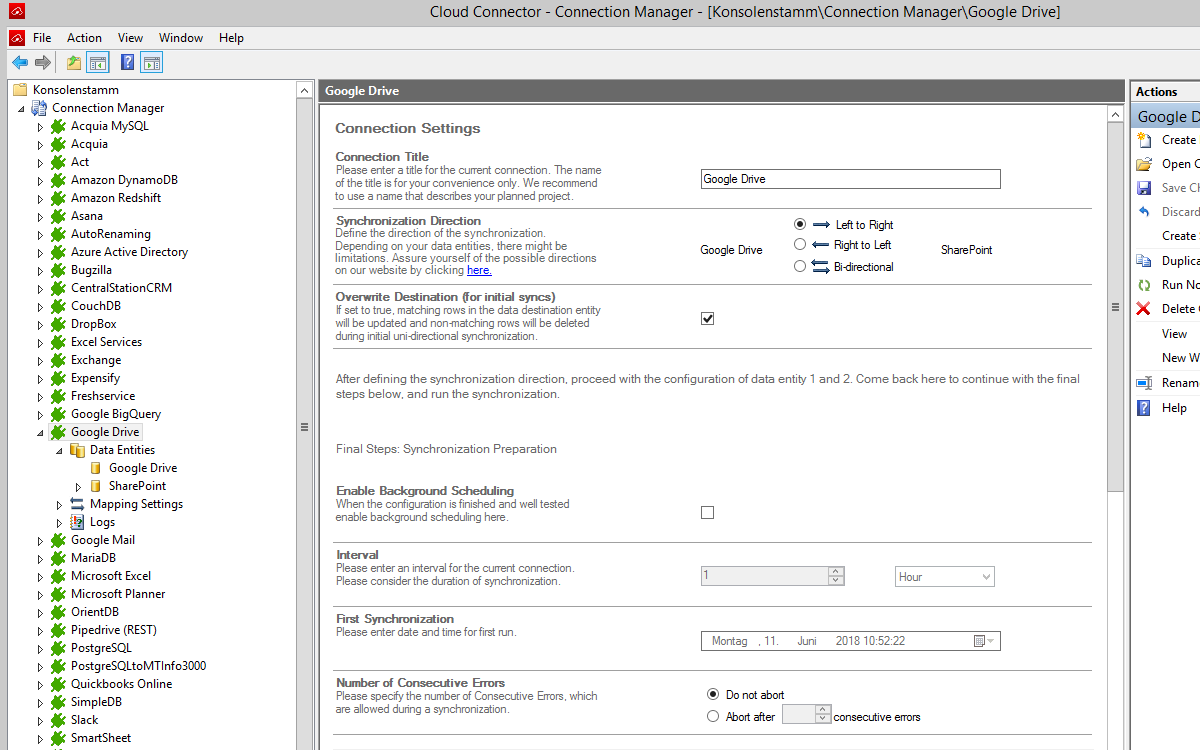
We will now set up our Data Entities. Go to the data entity “Data Entity 1” to open the configuration settings.
Choose a Data Entity Title. It is recommended to give your entities meaningful names to maintain an overview when you decide to set up multiple connections.
Select the Data Provider for Google Drive(Layer2) from the data provider list. You can search for Google Drive by typing into the selection box.
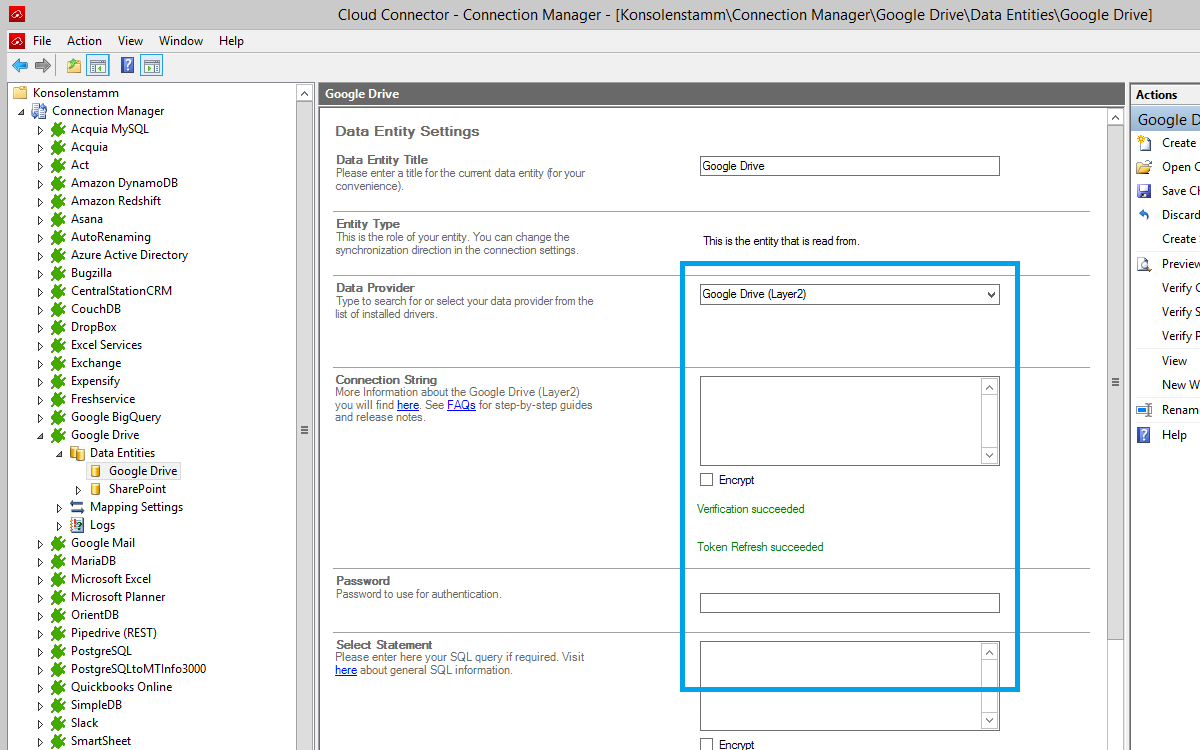
For the Google Drive provider a connection-string is not needed. Therefore we only must refresh our authentication token and grant the requested permissions for the Layer2 Cloud Connector:
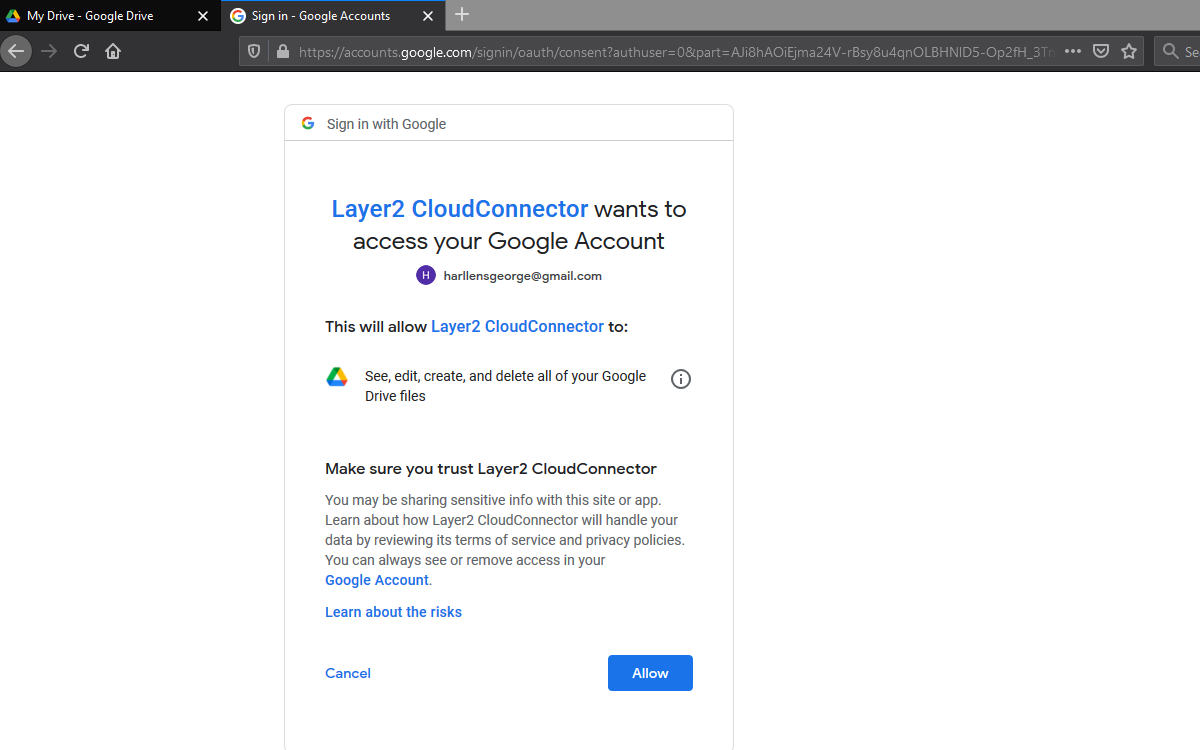
As the Cloud Connector app is currently not verified by Google, you will get a warning first and, dependent on your security settings, you might not be able to proceed to the consent dialog. In this case, please refer to the user documentation to find instructions how to work around this issue.
The Select Statement text box is used to define specific data queries and filter some files. Save your changes by using the right-hand pane option Save Changes.
To check if all necessary columns are received, you can use the Preview Data option on the right-hand pane and you will get a new pop-up showing your sample data from your Google Drive entity.
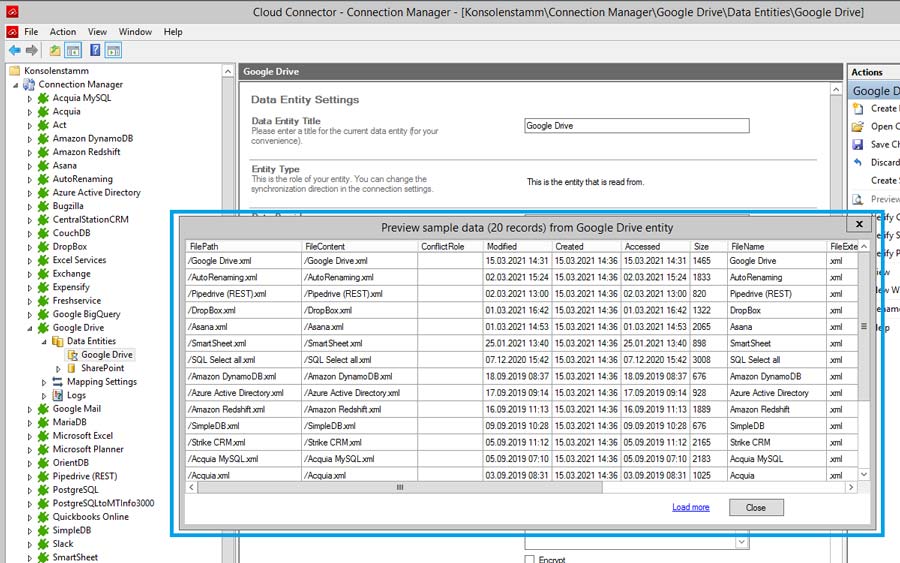
We are going to send the Files to a custom SharePoint Online Library. It's required that you set up this Library prior to the next steps.
Use the left-hand pane to switch to the data entity "Data Entity 2". We will be using the Layer2 SharePoint Provider for this setup.
For more information about the Layer2 SharePoint provider please visit: Layer2 SharePoint Provider
You can copy the below Connection String which contains the minimum of required properties to connect to your custom SharePoint Online Library.
URL=https://your_custom_sharepoint_library_url/AllItems.aspx;Authentication=Microsoft_Modern;
Save your changes by using the right-hand pane option Save Changes.
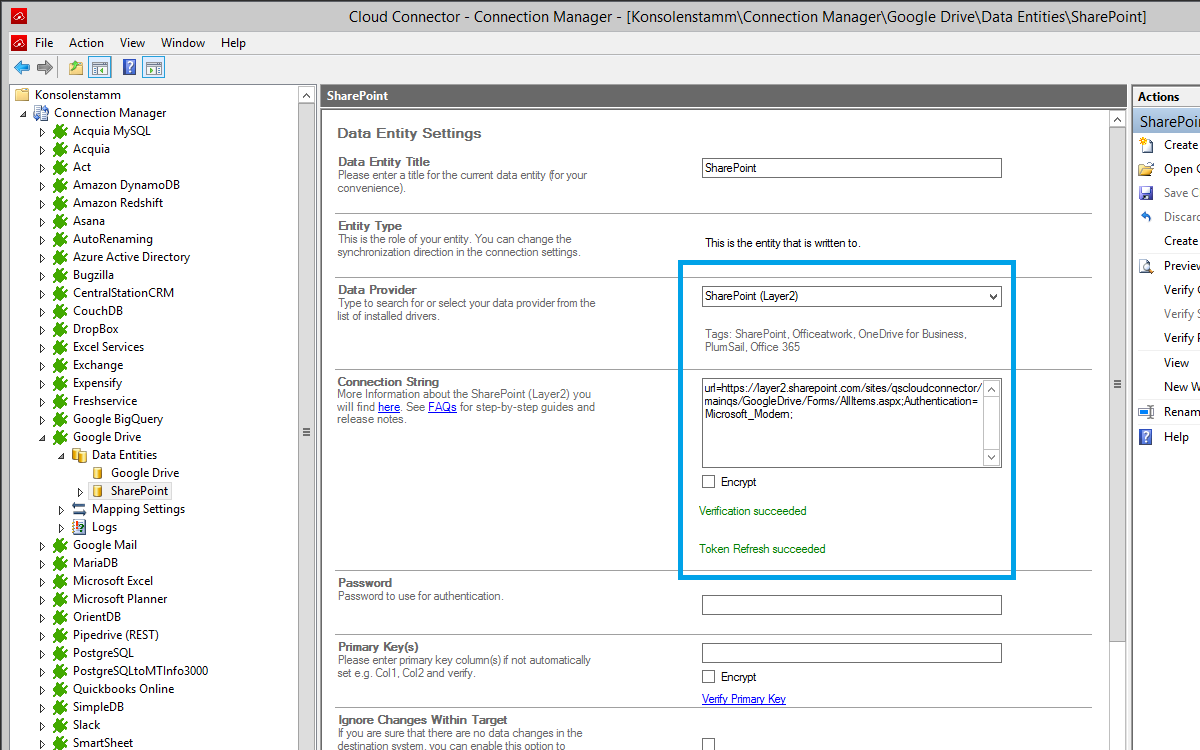
In the next step, we will configure our mapping settings. Click on the Mappings option on the left-hand pane. The Enable Auto Mapping option will match the columns. Disabling this option allows you to match your columns as needed. We enabled auto-mapping in our setup. Save your changes by using the right-hand pane option Save Changes.
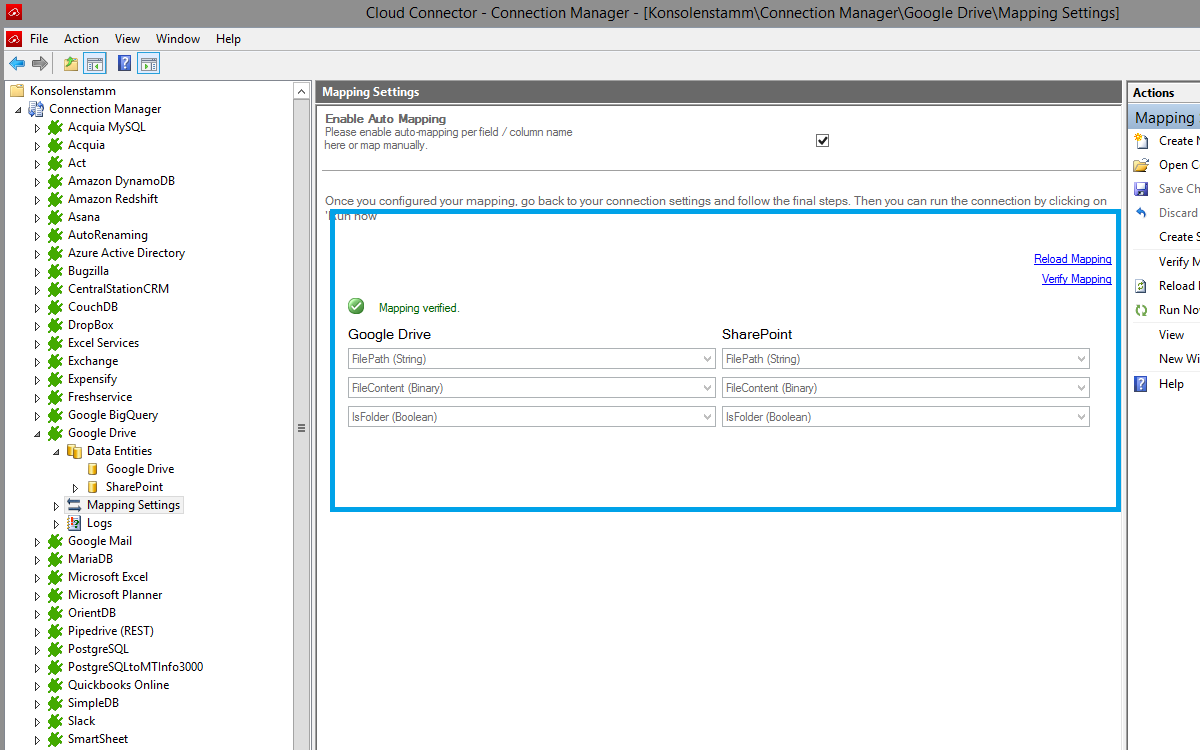
To run your connection switch back to the main connection configuration node and use the Run Now Button located on the bottom of the setup page. The Run Synchronization Toolbox will also display the synchronization process.
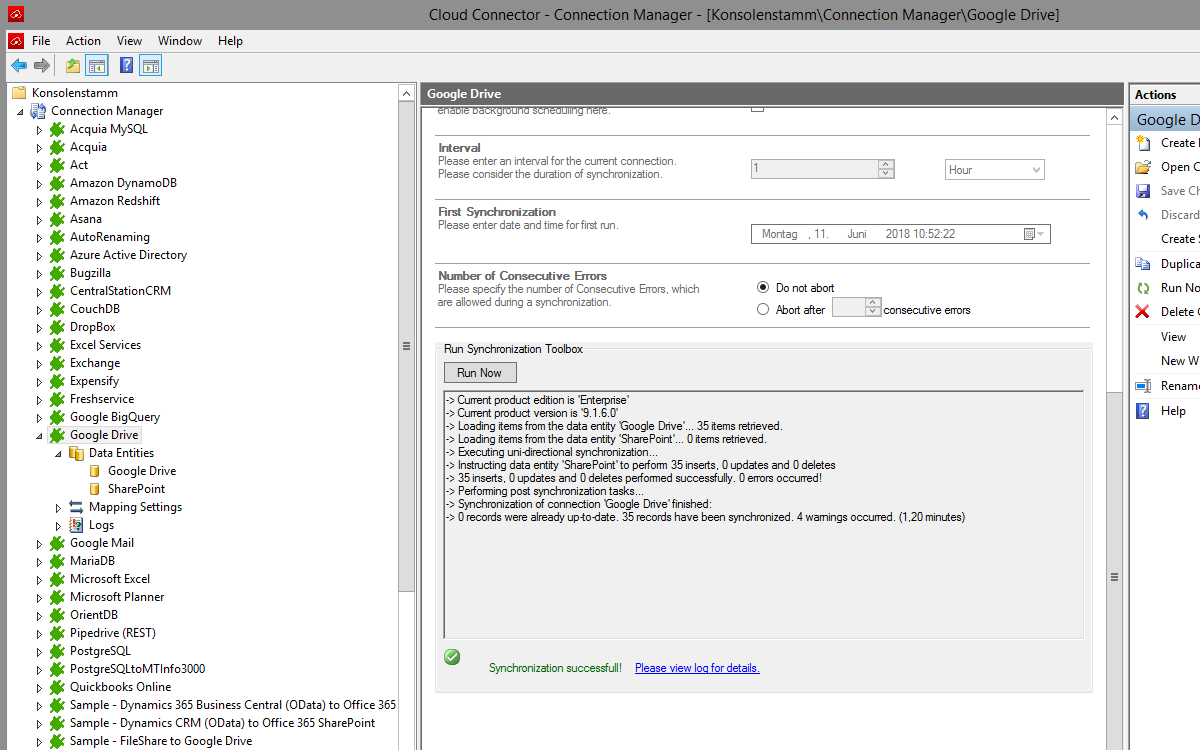
This will be the result in our SharePoint Online Library after our initial successful synchronization:
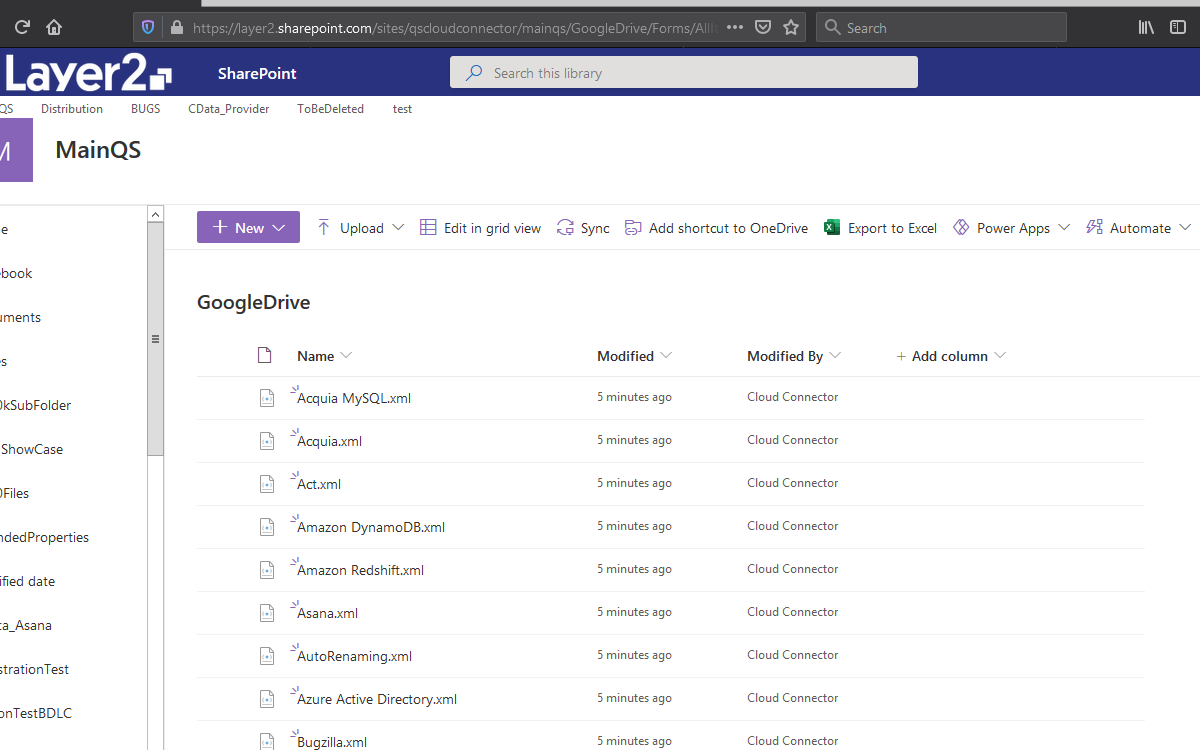
If you want to use a bi-directional synchronization, you can now switch your connection direction after our first initial synchronization run finished successfully.
See section 3.1 for further information.
As far as tested, this connection supports uni-directional as well as bi-directional synchronizations.
After adjusting the direction to bi-directional, you should check your Mapping settings again because some systems might include read-only columns that cannot be mapped directly.
We also recommend to choose a Conflict Resolution that matches your environments needs. You can find out more about the different conflict resolutions in our Layer2 Cloud Connector User Documentation.
Unfortunately it is currently not possible to target Google Shared Drive directly.
As the Cloud Connector app is currently not verified by Google, you will get a warning first and, dependent on your security settings, you might not be able to proceed to the consent dialog. In this case, please refer to the user documentation to find instructions how to work around this issue.